Silence the Noise: Expert | Guide to Fixing Noisy Air Conditioners
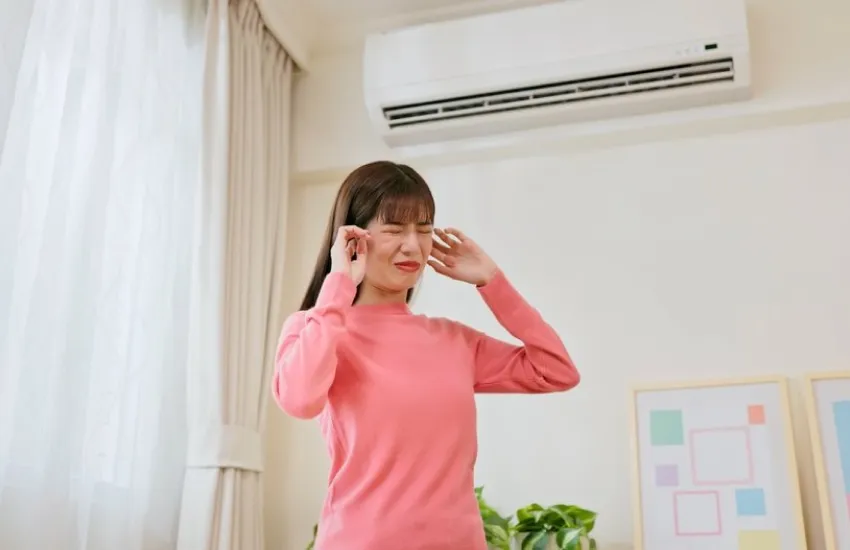
Find the root causes of air conditioner noise and learn effective diagnosis techniques. This guide provides step-by-step DIY solutions for common issues and advice on when to seek professional help. Implement preventive measures to ensure quiet, efficient cooling for years to come.
Silence the Noise: Expert Guide to Fixing Noisy Air Conditioners
The hum of an air conditioner on a sweltering day is music to our ears – until it’s not. When your AC starts making unusual noises, it’s not just annoying; it’s often a cry for help.
This guide will walk you through the possible sounds your air conditioner might be playing and how to restore harmony to your home.
Your fridge is a kitchen superstar as it keeps all your food fresh and drinks cold.
But does the fridge feel warm when you open it?
Is there water all over the floor?
Fridge issues are the worst!
Common Causes of Air Conditioner Noise
Your once-quiet AC unit might be trying to tell you something. Let’s decode the most common noisy culprits:
- Loose components like fan blades or panels
- Buzzing or humming from the compressor of your AC
- Squealing or grinding from motors or blades
- Hissing or bubbling indicates potential leaks
- Buzzing or clicking from wiring issues
- Rattling or whistling from ductwork problems
Diagnosing the Problem
- Classify the Noise: Is it a rattle, buzz, hiss, or something else?
- Locate the Source: Is it coming from indoors, outdoors, or the ductwork?
- Timing is Everything: Does it happen at startup, during operation, or shutdown?
- Visual Inspection: Look for obvious issues like loose parts or debris
- Temperature Test: Listen for changes when adjusting your thermostat
DIY Fixes for Noisy Air Conditioners
Sometimes, the solution is simpler than you think. Here are some DIY fixes that might just do the trick:
- Grab a screwdriver and secure any loose screws or bolts
- Replace dirty air filters to improve airflow and reduce strain
- Clear the area around your outdoor unit of leaves and twigs
- If manufacturer-approved, lubricate those fan motors
- Gently clean the condenser and evaporator coils
- Inspect and seal any leaky ductwork
When to Call a Professional
- The heart of your AC needs special care
- Leaks can be dangerous and require certified technicians
- Leave the shocking stuff to the professionals
- Replacement might be necessary for persistent noise
- Major repairs need a professional assessment
Preventing Future Noise Issues
- Schedule professional maintenance with CLT Appliance Repair
- Mark your calendar for regular filter changes
- Keep your outdoor unit clear of debris year-round
- Address minor issues before they become major headaches
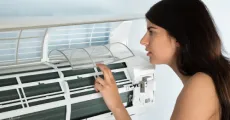
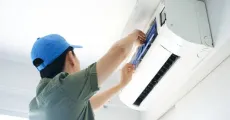
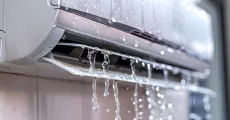
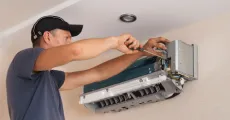
Final Thoughts
A noisy air conditioner doesn’t have to be the soundtrack of your summer. With this guide, you’re now equipped to diagnose, fix, and prevent many common AC noise issues. Remember, when in doubt, the experts at CLT Appliance Repair are just a call away for air conditioner repair charlotte nc. Don’t let AC noise disrupt your peace – take action today for a quieter, cooler tomorrow!
Don't let a malfunctioning Air conditioner disrupt your daily life. Contact CLT Appliance Repair today at 704-606-9043 to schedule your Air conditioner repair service.
We'll have your fridge back to optimal performance in no time!
- Air Conditioner Not Cooling
- Air Conditioner Leaking Water
- Air Conditioner Making Noise
- Air Conditioner Not Turning On
- Air Conditioner Frozen
- Air Conditioner Sensor Issues
- Air Conditioner Electrical Issues
- Air Conditioner Compressor Problems
- Air Conditioner Thermostat Issues
- Tips for maintaining an air conditioner.
FAQs
Loud buzzing often indicates electrical issues or a malfunctioning compressor. Check for loose wiring or call a professional if the noise persists.
Rattling is usually caused by loose components. Tighten visible screws and bolts, and ensure the unit is level. If the noise continues, internal parts may need professional attention.
Hissing can signal a refrigerant leak, which is potentially harmful. Turn off your AC and contact a certified technician immediately.
Annual professional maintenance is recommended to keep your AC running quietly and efficiently. Schedule a tune-up before each cooling season.
Yes, unusual noises often indicate strain on your system, which can lead to decreased efficiency and higher energy bills. Address noise issues promptly to maintain optimal performance.
Appliance Repair Indian Land SC | Appliance Repair Indian Trail NC | Appliance Repair Pineville NC | Appliance Repair Rock Hill SC | Appliance Repair Belmont NC | Appliance Repair Matthews NC | Appliance Repair Lancaster SC | Appliance Repair Cornelius NC | Appliance Repair Fort Mill SC | Appliance Repair Concord NC | Appliance Repair Denver NC | Appliance Repair Monroe NC | Appliance Repair Mooresville NC | Appliance Repair Harrisburg NC | Appliance Repair Lake Wylie SC | Appliance Repair Huntersville NC | Appliance Repair Kannapolis NC | Appliance Repair Mint Hill NC | Appliance Repair Waxhaw NC | Appliance Repair Troutman NC | Appliance Repair Davidson NC | Appliance Repair Gastonia NC | Appliance Repair Charlotte NC

